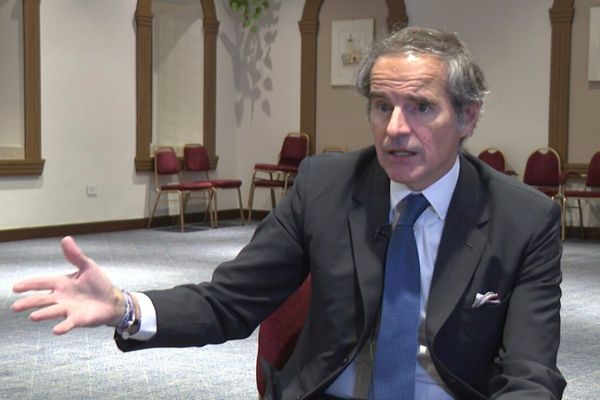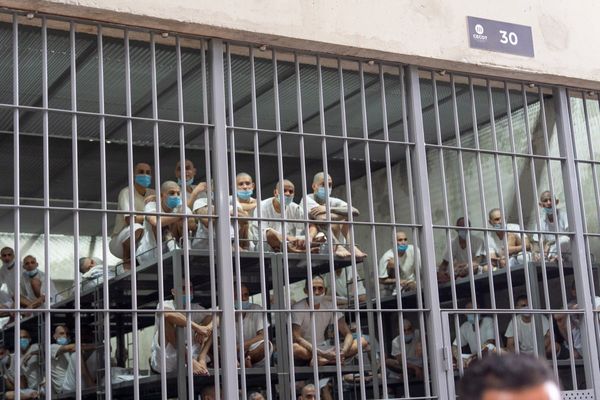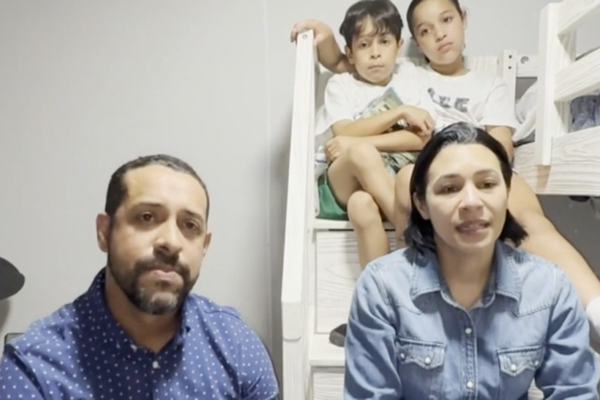
So deep, so minimal was the Southbank Centre’s second Deep Minimalism weekend (the first was in 2016), it was almost impossible to know in advance what was on offer. The website gave few clues beyond promising some 13 hours of “meditative listening and deep concentration” delivered by various experimental composers-performers – among them the flautist Kathryn Williams, whose Coming Up for Air consists of 40 tiny pieces “for a single breath”, and medieval violin and double pipe player Laura Cannell, who draws on early music and folk to create her arresting improvisations. The opaqueness of the timetable may have been part of the appeal. Plenty of people attended the sessions I went to, in the Purcell Room or Queen Elizabeth Hall.
One thing you learn, quite quickly, listening to the French composer éliane Radigue’s best-known work, Trilogie de la Mort (1988-93), is that either you have a knack for zoning in to her sound world, or you do not. The pioneering Radigue (b1932) was one of the few women to experiment with electronics in Paris in the 1950s, cutting, splicing, slowing down sounds and stretching small sonic cells into shadowy oscillation and abstract epic. Now in her late 80s, she was awarded the €10,000 Giga-Hertz award 2019 only last month. She has been praised as an artist whose compositions touch audiences via their “unique forms of empathy, understanding and introspection”.
Introspection is key. The Trilogie, a three-hour elegy for her son, is inspired by The Tibetan Book of the Dead. The noises, recreated digitally by the composer Emmanuel Holterbach, shuddered through you from surrounding speakers, at times like slow engine or propeller sounds, at others emerging as bells or drones, quivering with overtones. I’d read a description saying that if you are not a deep listener, all you will hear is a hum. Timbres and patterns of sound emerged, but I was unable to reach the meditative state of many of those around me, few of whom shared my need to fidget and sneak half-hourly checks on my watch. Yet some spirit of lament left its imprint. Next time I’ll do better.
Morton Feldman’s Triadic Memories (1981), a scrap at only 90 minutes (and short for Feldman; his second string quartet lasts five hours), requires ferocious concentration and stamina from the solo pianist to keep the fluid structure poised and purposeful. Feldman compared it to “the biggest butterfly in captivity”, which gives you an idea of the work’s beauty, its quietude and its slow-fluttering delicacy. Eliza McCarthy, American-born, trained in the UK, was a model of restraint and attentiveness. In comparison, One Life by the French composer Malibu, in an arrangement for 16 cellos with electronics, directed and co-arranged by Oliver Coates, played by the London Contemporary Orchestra, was a gorgeous wash of ambient sounds, complete with crashing waves and disembodied voices.
Also in an arrangement by Coates, these massed cellos played Canticles of the Sky (2007) by the American composer and environmentalist John Luther Adams, who spent many years in Alaska, writing in a cabin in the woods. Through long, lush string textures played legato, the Canticles attempt to capture in sound the low angle of the sun in the Arctic sky, with its strange halos and illusions of multiple suns. If meditative listening is allowed a climax, this was it.
Another American composer called Adams represents a more familiar tradition of minimalism. The Bournemouth Symphony Orchestra played John Adams’s City Noir (2009), written like an imaginary film score to evoke the mood and ambience of Los Angeles noir films of the 1940s and 1950s. This was a significant undertaking for the BSO and conductor Kirill Karabits, requiring a large orchestra with quadrupled woodwind, alto saxophone, five percussionists and a jazz drummer, as well as piano, celesta and two harps and endless calls for solo virtuosity. They played with zest and swagger, hurtling with flamboyance towards the big-band-style finale. The sorrow was that the audience in Basingstoke that night, for a strong programme that included Sibelius’s Violin Concerto played with soul, finesse and technical wizardry by Valeriy Sokolov, was so small. Luckily the same concert in Poole the previous night had a strong turnout.

Even in its seventh revival, David McVicar’s tenebrous, beautiful and probing production of Mozart’s Die Zauberflöte for the Royal Opera feels fresh, not least because of a new lineup of talent in lead roles (heard on second night). The British tenor Benjamin Hulett and French-Danish soprano Elsa Dreisig showed heart and discernment as Tamino and Pamina. Finnish soprano Tuuli Takala made the Queen of the Night’s arias sound effortless, never shrill. As Papageno, the Italian baritone Vito Priante charmed expansively, both vocally and theatrically. The Magic Flute raises many questions. Is it for or against women? Is the Queen of the Night truly evil? Are Sarastro (Andreas Bauer Kanabas) and his sinister brotherhood really wise? Though it wrestles with dark materials, Mozart’s last opera beguiles with sublime enchantment.
Star ratings (out of five)
Deep Minimalism 2.0 ★★★
Bournemouth Symphony Orchestra/Karabits ★★★
Die Zauberflöte ★★★★
Die Zauberflöte is at the Royal Opera House, London, until 27 November







